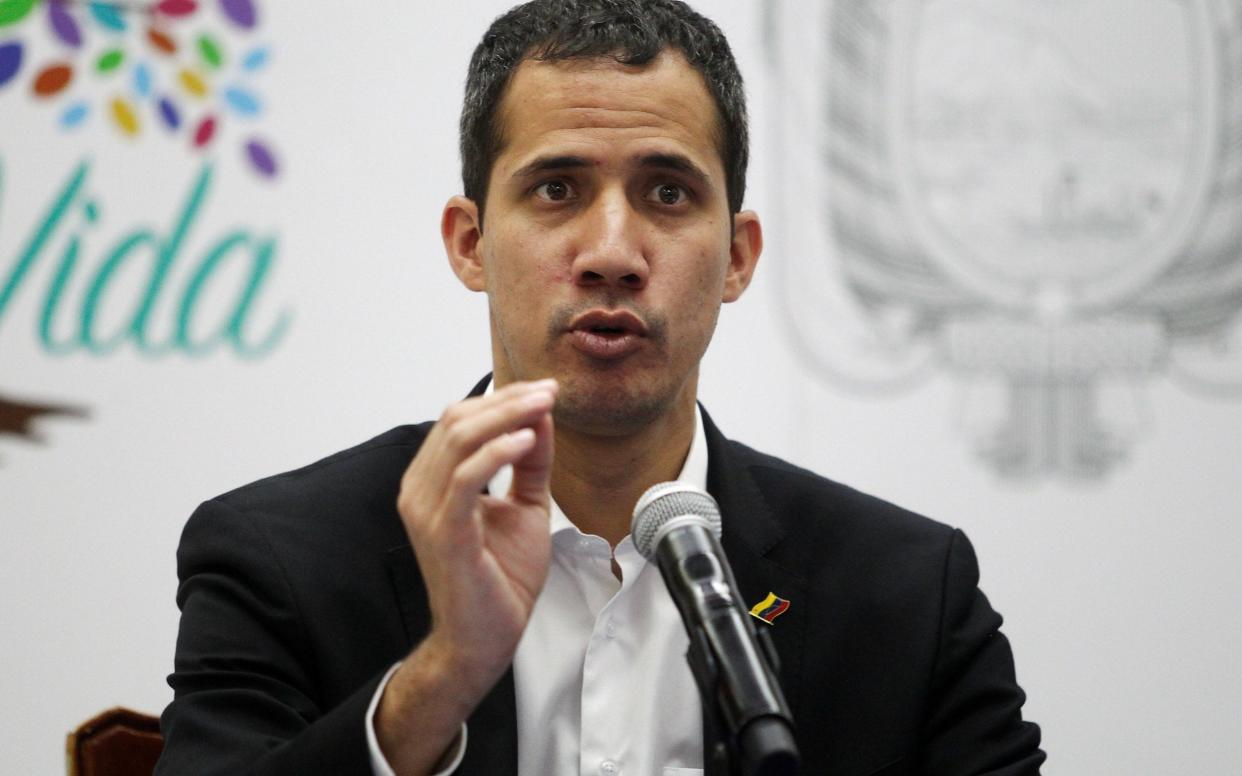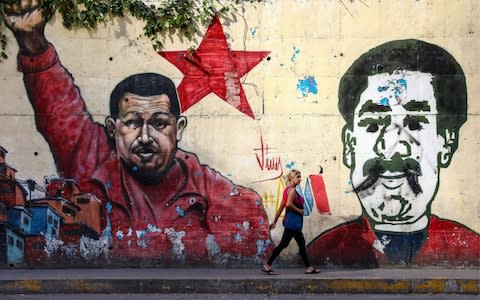'Let's go Venezuela!': Juan Guaidó calls for nationwide protests as he announces return to the country

Venezuela was yesterday in a state of anxious expectation as the country braced for the return of Juan Guaidó, the self-declared president locked in a deepening leadership standoff with Nicolas Maduro.
Mr Guaidó has vowed to re-enter the country after slipping out to neighbouring Colombia to lead the attempted passage of aid just over a week ago. In violation of a travel ban, he risks arrest upon his return, a move that could tip the South American nation further into chaos after weeks of deadly unrest.
Likely a make-or-break moment in his bid to oust Mr Maduro, no one knows exactly how or when the 35-year-old politician will attempt to cross the heavily-guarded borders. With Mr Guaidó’s movement entirely absent from the airwaves due to a state media blackout, Venezuelans are reliant on social media for news of the man recognised as the legitimate president by more than 50 countries.
There were reports last night that Mr Guaidó had landed in the Colombian capital, Bogota, from where he could attempt to fly on to Caracas - an airport controlled by the Venezuelan armed forces.
It was on Twitter that Mr Guaidó yesterday called on Venezuelans to launch nationwide protests in support of his arrival. "I'm announcing my return to the country. I am calling on the Venezuelan people to mobilize all over the country tomorrow at 11am," he said. "Let's go Venezuela!"

Mr Maduro's government has accused Mr Guaidó of attempting to mount a coup with the backing of "imperialist" powers, and insisted it will fight to the last to defend Venezuelan "democracy" against any foreign military intervention.
On the streets of Caracas, bristling with security forces, supporters said they believed that if Mr Guaidó was incarcerated it would unleash a popular uprising against the Socialist government.
“The people will go out into the streets,” Albeiro Valencia, a 62-year-old stallholder at the Market of Chacao, told The Telegraph. “He has to come back because he is our president!” insisted his wife, Alicia Valencia, 62.
The couple said change could not wait, that Venezuelans could no longer cling on to survival amid chronic shortages and hyperinflation. A pack of 12 rolls of toilet paper on their stall now costs 65,000 bolivars, more than three times the 18,000 bolivars - around $6 - to which the government tripled the minimum monthly wage in January.
Despite the ever-soaring prices, the market was bustling yesterday as shoppers attempted to stock up ahead of an uncertain week. Olga Lorenzo, a 56-year-old businesswoman shopping with her husband, said they feared a complete collapse in the coming months, and did not even know if they would be able to buy food on Wednesday, "so we came just in case".

They plan to join the protests today, and are hopeful that the end of the Maduro era is near, though they acknowledge that it may come with "civil unrest". "The support from outside helps a lot," her husband, Hernan Rosas, 64, said.
There has been a chorus of international warnings against arresting Mr Guaidó. The EU said that any measure against his freedom or safety would represent "a major escalation of tensions". The president of Panama, Juan Carlos Varela, cautioned such a move would be "to confront the people and more than 50 countries who support him."
But others said they did not believe street pressure would unseat Mr Maduro. Luis, a 53-year-old salesman in Caracas's central Sabana Grande area, who did not wish to give his last name, said Venezuelans were now extremely frightened by the level of repression, and the government would not go of its own accord.
"There is not a good way out," he said, lamenting: "It's the people that are going to suffer the consequences."
Nancy, a 33-year-old housewife who did not wish to be fully named, said that she had little faith in either Mr Maduro or Mr Guaidó. But she was struggling to feed her three children, she told The Telegraph as they walked in Sabana Grande, adding: "I can get by for a day by drinking lots of water, but I have to find something for them."
She feared the arrest of Mr Guaidó would bring "horrible" consequences, adding she was worried about the prospect of war. "I am thinking about my children," she said.

